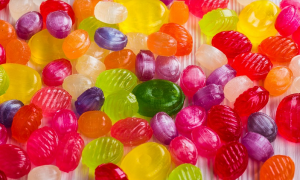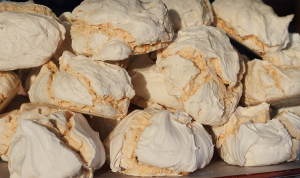
A Sweet Question with a Surprising Answer
We all love chocolate cupcakes, don’t we? That irresistible combination of fluffy batter and decadent frosting has the power to satisfy our sweet cravings instantly. But sometimes, we find ourselves wondering: how many carbs are hiding in that delicious treat?
It’s a valid question! Carbs, especially simple sugars, can affect our energy levels and even impact blood sugar, so we want to be informed about what we put into our bodies.
The truth is, the number of carbs in a chocolate cupcake varies depending on several factors:
- Recipe: Some recipes call for more flour and sugar than others, impacting their carb content.
- Size: A mini cupcake will have fewer carbs than a regular-sized one.
- Ingredients: Chocolate chips, cocoa powder, and even the type of milk used can all influence how many carbs are present in a batch.
Let’s break down some typical carb counts to give you a better idea:
For instance, a standard-sized chocolate cupcake, with about 250 grams of batter, often contains around 30 grams of carbs.
Now, let’s dive a little deeper into those factors that influence the final carb count:
Cupcake Recipe & Ingredients:
The most common type of chocolate cupcake recipe will have about 15-20 grams of sugar in each cupcake. A typical cup of flour (125 grams) contains around 4 grams of carbohydrates. Adding to this, a standard serving size of baking powder is about half an ounce.
**How do these ingredients interact?**
The recipe and ingredient list are the foundation for determining the carb count. Flour adds bulk, sugar boosts flavor, and baking powder adds lift, all contributing to that cupcake’s texture and taste, but also influencing the final amount of carbs.
**Cupcake Size Matters:**
Remember those mini cupcakes? They often have a surprisingly small carb count compared to regular-sized ones. This is because the smaller size means less batter overall, resulting in fewer grams of sugar and flour, ultimately leading to a lower carbohydrate content.
**Chocolate Chips: A Hidden Carb Source**
Those decadent chocolate chips are a big part of what makes a cupcake so irresistible. Chocolate chips, especially dark varieties, can have higher fat content and can be denser than other types. But their impact on the total carb count is significant!
**Cocoa Powder: Impacting Chocolate Flavor**
The type of cocoa powder used in a recipe plays a role too. Dutch-processed cocoa powder has a lower acidity, resulting in less sweetness and more vibrant flavor. This means that the amount of sugar needed to achieve the desired chocolate taste may be reduced.
**Milk: A Carb-Adding Ingredient**
The type of milk used can also impact the carb count significantly. Whole milk, for example, contains more lactose than skim or almond milk. Lactose is a sugar that our bodies break down into glucose and galactose.
**Baking Powder: A Carbohydrate Booster**
A common ingredient in most chocolate cupcake recipes is baking powder. This leavening agent helps the cupcakes rise to fluffy perfection, but it also contributes carbs to your total intake.
**How to Check the Carb Count:**
If you’re looking for a more accurate carb count, always check the ingredient list of your recipe or cupcake mix.
Conclusion: Enjoy Your Cupcake Responsibly!
Remember, cupcakes are delicious treats, and it’s fine to indulge occasionally. But be mindful of the carbs you consume daily so that you can maintain a balanced diet and enjoy your sweet cravings without feeling guilty or overwhelmed.
Now go ahead, enjoy that chocolate cupcake!


